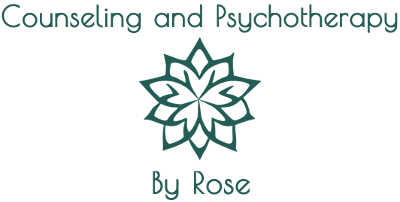Are you chained to your past? Is there a traumatic memory, relationship, or series of experiences in your past you just can’t “get over”? Are you overreacting to things in the present that remind you of these past experiences?
EMDR (Eye Movement Desensitization and Reprocessing) is a revolutionary therapeutic method that has had tremendous success targeting these old experiences, taking the sting out of them, and allowing us to see our past and present in a more accurate, integrated way. You can think of it as cutting the chains that bind you to unhealthy, unprocessed memories in your past by processing and integrating them into the rest of your memories.
EMDR has been shown in numerous studies to be a highly effective treatment for anxiety, depression, PTSD (Post Traumatic Stress Disorder), and for improving general psychological functioning.

This is generally how it works:
When we have an experience, it is first encoded in a fairly primitive part of our brains with much of the original affect and sensation. As our brain processes these memories through sleep and time, these short-term memories normally get integrated into the more sophisticated part of our brains to become long-term memories and what we can think of as knowledge.
Sometimes, though, experiences can get trapped in the primitive parts of our brains and when we try to call them up, we feel a visceral pain. Sometimes, we can even feel as if we are experiencing it again – even if it happened many years ago. Even unrelated events in our current life can trigger these memories and cause us to re-experience that old pain, which may jeopardize our relationships, safety, jobs, and definitely our well-being.
EMDR works by stimulating alternating sides of our brains while we are pulling up old memories. This bilateral stimulation allows the memories not only to be recalled, but to be integrated into the rest of our knowledge base. Memories that were once intensely disturbing to recall may eventually be brought up with ease. More importantly, events in our current life that used to remind us of those memories can be experienced for what they are – not for what that old pain told us they were.
Here is a news report on a Santa Monica man’s experience with EMDR:
Results can be profound for clients like Steven, who have suffered one or more major, life-threatening traumas and have symptoms of PTSD. EMDR can also be effective, however, in processing less intense traumatic experiences, such as a difficult relationship with a parent during childhood, the pain of a divorce, or even a memory of being laughed at as a child.
As an EMDR-trained therapist, I have the opportunity to witness the power of this technique on a regular basis, and I have seen tremendous healing take place – healing that goes beyond simply knowing where the pain is coming from – but rather dissolving the pain so it stops dictating your actions and experiences. EMDR can be used on its own or as an adjunct to your current talk therapy.
Rose Hickman Smith is a psychotherapist in private practice in Los Angeles, California, and is currently accepting new clients. You may contact her now for a fifteen-minute telephone introduction at no charge or get started right away with a full session in the Westside or Eastside LA office by clicking the “book appointment” button below. You can reach me by telephone at (424) 571-2273, by email at rose@counselingsocal.com, or by filling out the contact form.

